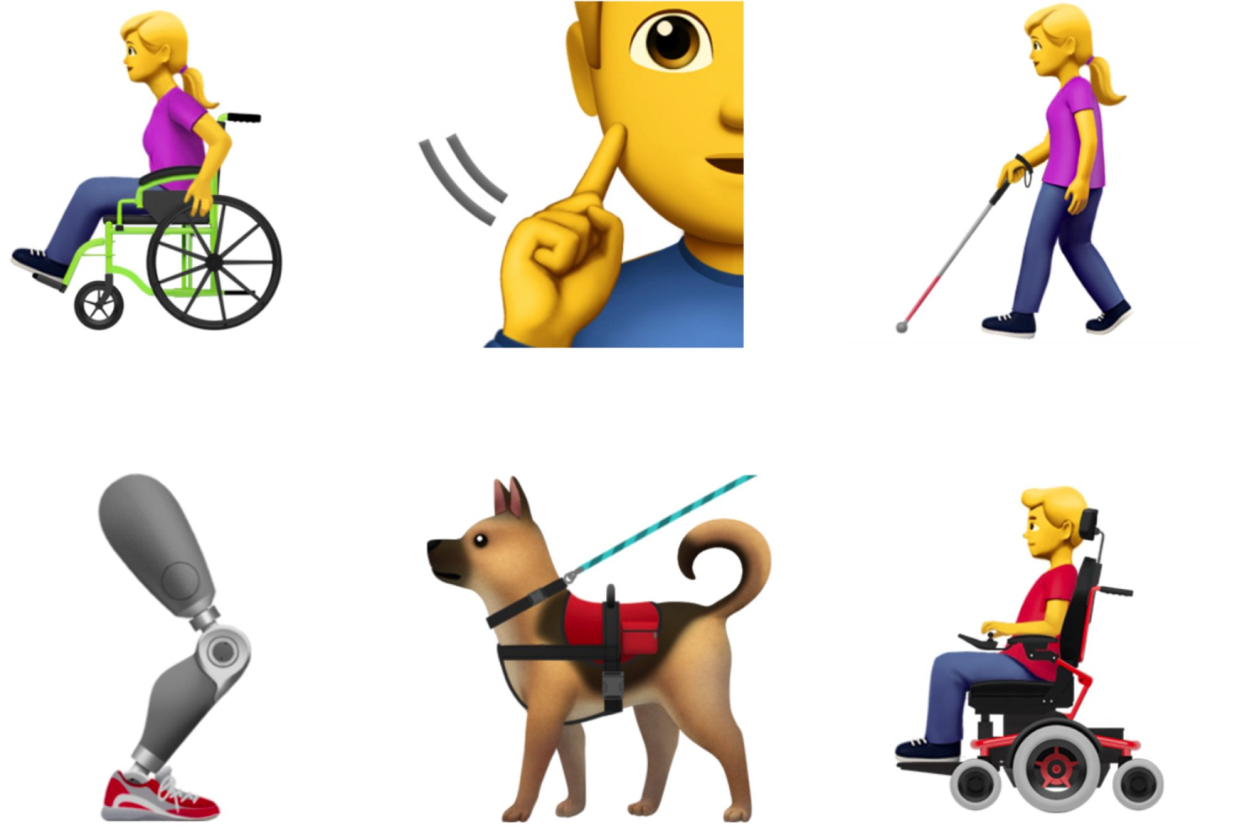Apple proposes 13 new emojis to represent people with disabilities

As the emoji world strives to be more inclusive, Apple is now proposing emojis to represent people with different disabilities.
Submitting a proposal to the emoji-creators Unicode Consortium, Apple has proposed a new line of “accessibility emojis,” and it's about time.
The new emojis, if approved, will include a guide dog, hearing aid, people using canes and wheelchairs, and prosthetic limbs.
Apple’s proposal reads: “Apple is requesting the addition of emoji to better represent individuals with disabilities. Currently, emoji provide a wide range of options, but may not represent the experiences of those with disabilities.”
According to Apple, the necessity for these emojis stems from the fact that: “One in seven people around the world has some form of disability, whether that be a physical disability involving vision, hearing, or loss of physical motor skills, or a more hidden, invisible disability.”
However, the tech company made sure to point out that the new emojis would not cover all possible depictions of disabilities, but that they would be “an initial starting point.”
🆕 📲 New: Apple has submitted a proposal to Unicode for accessibility emojis including people in wheelchairs, service dogs, and prosthetic limbs. If approved, they'll be on phones next year https://t.co/ic87QRkDpj pic.twitter.com/d7NISQR0me
— Emojipedia 📙 (@Emojipedia) March 23, 2018
While creating the new emojis, Apple focused on four main categories: blind and low vision, deaf and hard of hearing, physical motor, and hidden disabilities.
And, in order to ensure the new emojis, which will include 13 total, would be inclusive of as many people as possible, Apple collaborated with organisations including the American Council of the Blind, the Cerebral Palsy Foundation and the National Association of the Deaf, according to the proposal.
Manual wheelchair and mechanized wheelchair options are included in this proposal pic.twitter.com/oVD7qEoFHl
— Emojipedia 📙 (@Emojipedia) March 23, 2018
Mechanical or prosthetic versions of the 💪 Biceps and (new) Leg emoji are "expected to have a variety of uses" pic.twitter.com/sntUxIvuqR
— Emojipedia 📙 (@Emojipedia) March 23, 2018
If approved, the emojis will likely be released early 2019 - and people cannot wait.
In addition to a guide dog emoji, new characters for people walking with a probing cane are proposed. These would likely support genders and skin tones if approved. pic.twitter.com/NSEAHQYSlF
— Emojipedia 📙 (@Emojipedia) March 23, 2018
In response to the news, people on Twitter have been praising Apple for the move.
“This is way overdue but well done Apple,” tweeted one person.
YES! YES! YES! I need a better ♿ emoji!
— Hatty (@_Hatty_) March 23, 2018
The new accessibility emojis follow the introduction of redhead emojis and same-sex couple emojis - which were also recently proposed to Unicode.


